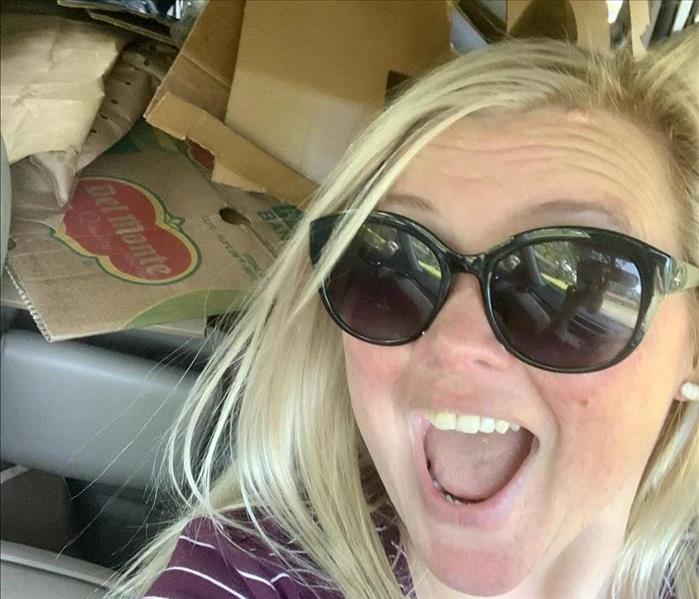Reuse, Reduce, Recycle
5/1/2021 (Permalink)
You can usually turn to Facebook and see who is offering major recycling days in your community like: paint, tires, electronics, shredding and more. Until then here’s a handy five step guide on how to recycle effectively. :
1. Know What to Put in the Recycling Bin
Keep it simple and focus on the most commonly recycled items are paper, glass, aluminum and plastic. Rigid plastics like water and soft drink bottles, milk jugs, detergent jugs or anything like these can be recycled. Don't use the recycled symbol as a guide, “the number on the container is really for people to identify the type of resin it is. That’s not helpful for the common consumer,” said Cody Marshall, a strategist at nonprofit Recycling Partnership.
2. Know What is Not Recyclable
It is really important to know what you cannot put in your bin. You can always check with your municipality or at BeRecycled.org if you live in the US, just plug in your zip code to search. Recycling companies struggle with the same problem items: hoses, cords, plastic bags, needles, clothing and propane tanks, according to Marshall, so don't put those items in your bin.
3. Rinse out or Clean items
Do a quick clean to make sure there is no food left in containers before you put them in the bin. This is really important if you only use one bin because food items or liquids could ruin paper. Save food for composting in your garden.
4. Don't Bag it
Unless you live in a place that requires it, like New York City, keep the recyclables loose in the bin. “A lot of the time, it’s not safe for our employees to rip those bags open, or it takes too much time,” said Keller. “A lot of bagged stuff goes right to the landfill.”
5. If You Don't Know Then Throw it Out
If you really don't know if an item is recyclable and if it cannot be donated to be reused, then just throw it in the garbage. It will end up in a landfill but so will items that are put in recycle bins that don't belong there. If there is non-recyclable items in your bin, it may not be picked up anyway. Waste Management companies spend as much as 140,000 hours every year to remove plastic bags, Christmas lights and other items that get tangled up in the equipment.
Plastic bags can be used again or returned to grocery stores. Batteries, light bulbs, and hazardous waste may have a local recycling program so google or check BeRecycled.org to see where they can be dropped off.





 24/7 Emergency Service
24/7 Emergency Service
